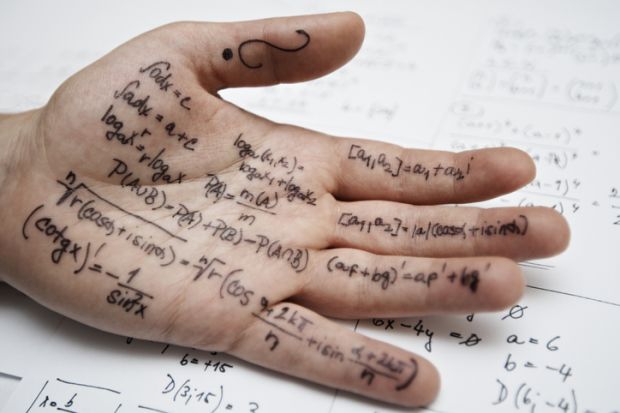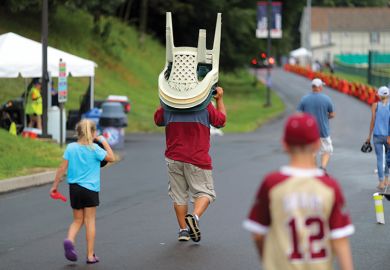The Australian National University (ANU) was scrambling to “clarify” the marks of several hundred computing students, after an entire class was reportedly penalised because unidentified classmates had cheated on an assessment task.
The ABC reported that 300 students in a third-year algorithms class had been told they would be docked 30 per cent of their marks from a project to develop a software application because their lecturer had been unable to identify the perpetrators of “massive academic misconduct”.
The chicanery was apparently exposed when the university uncovered advertisements from students offering to pay others to complete the task for them but could not identify who had posted them.
The lecturer reportedly told students to be thankful that they had not been awarded a “negative mark”. She urged them to complain not to teaching staff but to fellow students who had tried to “outsource” the project.
Her measures reportedly triggered an outpouring of anger on social media. “They can’t actually do that in terms of misconduct penalties,” one student posted. “Like seriously they can’t, if this is real yoy [sic] can contest this very easily.”
An ANU spokeswoman said the university was “aware of a situation” concerning a “compromised” assessment in a single course. She indicated that the project, which reportedly comprised 40 per cent of the course marks, would now be overlooked for assessment purposes.
“To maintain the course’s academic integrity, other assessments have been rescaled accordingly to the benefit of all students, and students are able to score 100 in total for the course,” she said.
The university subsequently reversed the 30-point penalty. In an email to affected students, the computer science school apologised for “creating the impression that we have administered a group punishment”.
The email says the school had “applied standard measures of adjustment” after finding marks for the assessment to be “unusually skewed”. It had also noted evidence of “widespread academic misconduct”.
“In order to alleviate any possible suspicion of the connection between routine mark adjustments and the detection of widespread academic misconduct, we are reinstating the original marks for this assessment. We will also be undertaking a careful and thorough investigation of the academic misconduct evidence.”
UNSW Sydney academic integrity researcher Cath Ellis said she did not know of any university that had not experienced “some kind of spike or shift” in the detection of student misconduct. “It could be that detection is now easier than it was or it could be that students are seeing new opportunities that just weren’t there before,” Dr Ellis said.
She stressed that increased detection did not necessarily indicate increased incidence. Academics could be “fed up” with what they perceived as more cheating, she said, while students could be frustrated at their universities’ failure to develop more effective assessment tasks.
Dr Ellis said the main logistical change during the pandemic was that universities had been unable to hold in-person exams – an assessment mechanism that was vulnerable to cheating in any case. “Too many people still rely on that old invigilated exam and have tried to find another way of doing what they thought those exams were doing,” she said.
“People have sometimes tried to replicate invigilation and haven’t really been able to pull it off. There’s all sorts of stories circulating about people trying to use Zoom or Teams as a sort of invigilation tool.”
Dr Ellis said research had shown that students who saw opportunities to cheat were more likely to do so. “Shifting the way we did these exams gave students what they thought were new opportunities to cheat: opportunities to Google the answers; opportunities for contract cheating. Perhaps what has contributed to the caseload is that not all students were particularly good at covering their tracks.”
Register to continue
Why register?
- Registration is free and only takes a moment
- Once registered, you can read 3 articles a month
- Sign up for our newsletter
Subscribe
Or subscribe for unlimited access to:
- Unlimited access to news, views, insights & reviews
- Digital editions
- Digital access to THE’s university and college rankings analysis
Already registered or a current subscriber?










